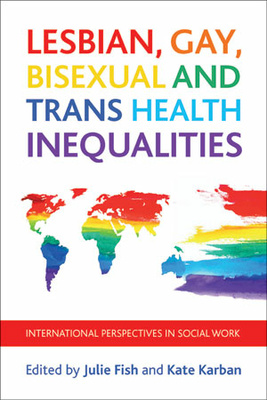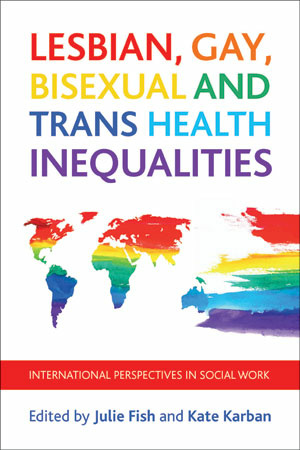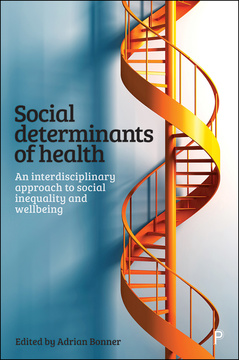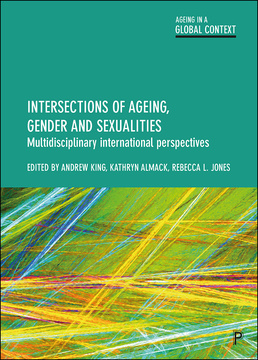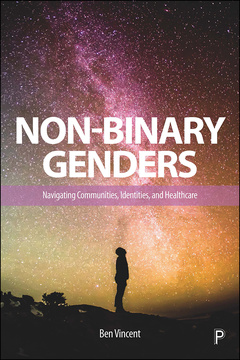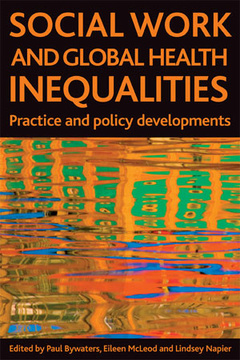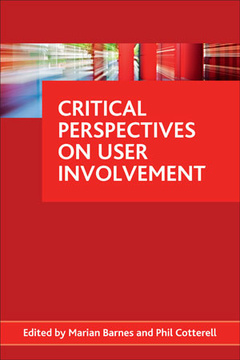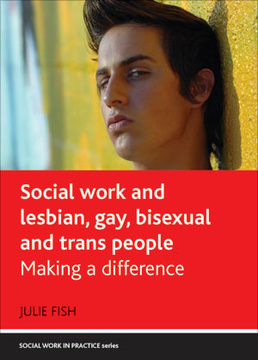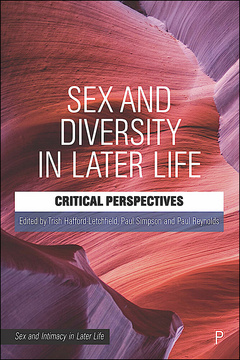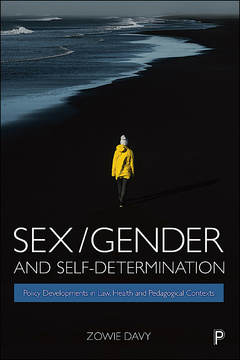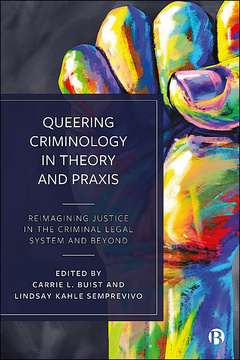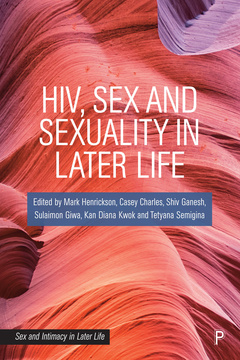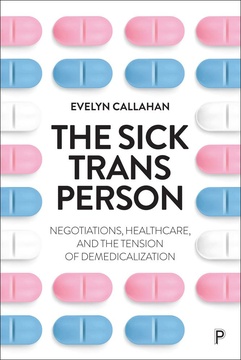Lesbian, Gay, Bisexual and Trans Health Inequalities
International Perspectives in Social Work
Edited by Julie Fish and Kate Karban
Published
Mar 18, 2015Page count
342 pagesISBN
978-1447309680Dimensions
234 x 156 mmImprint
Policy PressPublished
Mar 18, 2015Page count
342 pagesISBN
978-1447309673Dimensions
234 x 156 mmImprint
Policy PressPublished
Mar 18, 2015Page count
342 pagesISBN
978-1447322726Dimensions
Imprint
Policy PressPublished
Mar 18, 2015Page count
342 pagesISBN
978-1447322733Dimensions
Imprint
Policy PressThis ground-breaking book examines inequalities experienced by LGBT people and considers the role of social work in addressing them.
The book is organised in three parts: the first provides a policy context in four countries, the second examines social work practice in tackling health inequalities, and part three considers research and pedagogic developments. The book’s distinctive approach includes international contributions, practice vignettes and key theoretical perspectives in health inequalities, including social determinants of health, minority stress, ecological approaches and human rights.
Lesbian, gay, bisexual and trans health inequalities is relevant to social work educators, practitioners and students, alongside an interdisciplinary audience interested in LGBT health inequalities.
Julie Fish is Professor of Social Work and Health Inequalities at De Montfort University. She has conducted research in this field funded by the ESRC and the Department of Health and published numerous academic articles.
Kate Karban is a Senior Lecturer in Social Work at the University of Bradford. Her interests include mental health and health inequalities. She and Julie Fish were joint convenors of the Social Work and Health Inequalities Network (SWHIN) 2010-2014.
Foreword by Gary Bailey;
Introduction: social work’s contribution to tackling lesbian, gay, bisexual and trans health inequalities ~Julie Fish and Kate Karban;
Part One: Key issues in social work with LGBT people;
Much to be desired: LGBT health inequalities and inequities in Canada ~ Nick J. Mulé;
Between public neglect and private needs: conceptualising approaches to LGBT issues in Italian social work ~ Andrea Nagy and Urban Nothdurfter;
Queering the pitch: a need for mainstreaming LGBTQ issues in professional social work education and practice in India ~ Ketki Ranade;
Life in the Pink Dragon’s Den: mental health services and social inclusion for LGBT people in Wales ~ Tracey Maegusuku-Hewett, Michele Raithby and Paul Willis;
Part Two: Service design and practice development;
Coming into view? The experiences of LGBT young people in the care system in Northern Ireland ~ Nicola Carr and John Pinkerton;
Social services for LGBT young people in the United States: are we there yet? Elizabeth A. Winter, Diane E. Elze, Susan Saltzburg and Mitchell Rosenwald;
Unique experiences and needs of LGBT older people: one community in rural California responds ~ Elizabeth Breshears and Valerie Lester Leyva;
Good practice in health and social care provision for LGBT older people in the UK ~ Sue Westwood, Andrew King, Kathryn Almack, Yiu-Tung Suen and Louis Bailey;
A theoretical model for intervening in complex sexual behaviours: sexual desires, pleasures and passion – La
Pasión – of Spanish-speaking gay men in Canada ~ Gerardo Betancourt;
Research and policy about end of life care for LGBT people in the UK ~ Kathryn Almack, Tes Smith and Bridget Moss;
LGBT asylum seekers and health inequalities in the UK ~ Kate Karban and Ala Sirriyeh;
Part Three: Social work education and research;
Pedagogy for unpacking heterosexist and cisgender bias in social work education in the United States ~ Susan Saltzburg;
Maximising research outcomes for trans children and their families in Canada using social action and other
participatory methods of inquiry ~ Annie Pullen Sansfaçon and Kimberley Ens Manning;
Mental health inequalities among LGBT older people in the United States: curricula developments ~ Valerie Lester Leyva;
Strategies for maximising participation from LGB people in internet surveying in the United States ~ Andy Dunlap;
Gay and bisexual men raped by men: an invisible group in social work in Sweden ~ Hans Knutagård;
Queering social work methods in health disparities and health promotion in the United States ~ Tyler M. Argüello;
Conclusion ~ Kate Karban and Julie Fish.







